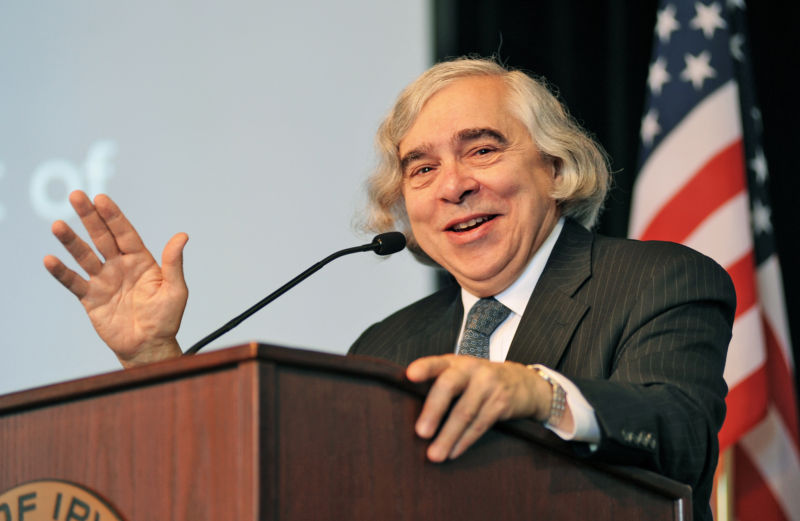US Department of Energy strengthens protections for its researchers
Ars Technica » Scientific Method 2017-01-19

Enlarge / The policy was announced last week by nuclear physicist and DOE Secretary Ernest Moniz, who will be replaced by former Texas Governor Rick Perry if he is confirmed by the Senate. (credit: Thomas Kelsey/U.S. Department of Energy Solar Decathlon)
When President-elect Donald Trump’s transition team sent a questionnaire to the Department of Energy asking, among other things, for the names of employees who had worked on anything that touched climate policy, it raised concerns about whether those employees would be targeted. (The transition team later said the questionnaire was “not authorized.") Thanks to a new Department of Energy policy announced last week, that sort of political interference should be (at least a little) harder to do going forward.
The new policy has its roots in a 2009 President Barack Obama memo directing agencies to craft “scientific integrity” policies that protect research staff from having their work censored or altered or prevent researchers being muzzled themselves. Twenty-four departments and agencies have followed through with such policies, but the Department of Energy’s version was a little vague and weak. The newly finalized policy is stronger, earning praise from the Union of Concerned Scientists.
The policy now clearly covers all staff at the Department of Energy's 17 national laboratories around the country, including employees of contractors and university researchers funded by DOE grants. They are free to share research findings with the public and other scientists and “are free to discuss their personal opinions on scientific and technical related policies, provided these views are not represented as those of the US Government or DOE.” There are explicit exceptions for classified information given the department’s nuclear work.